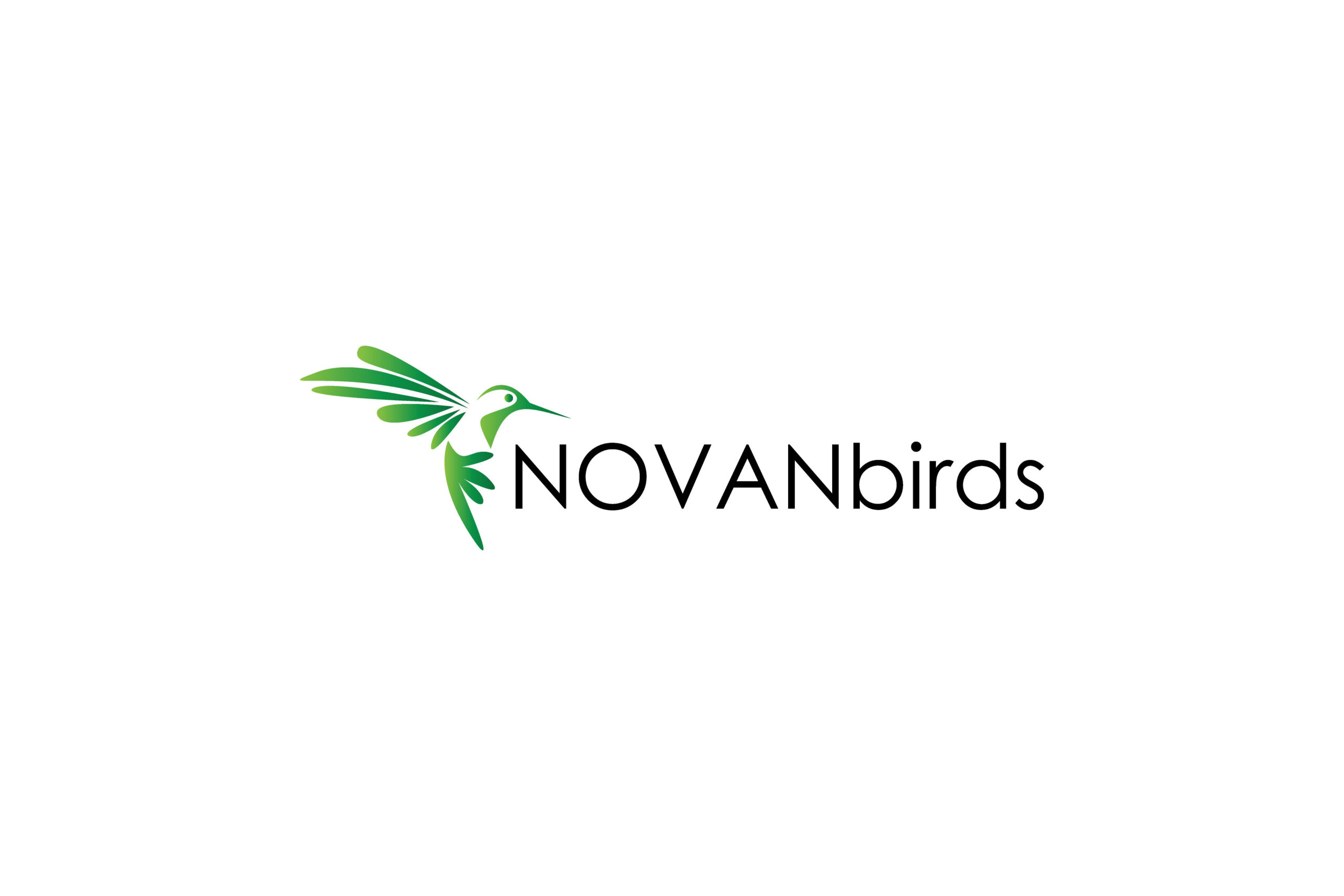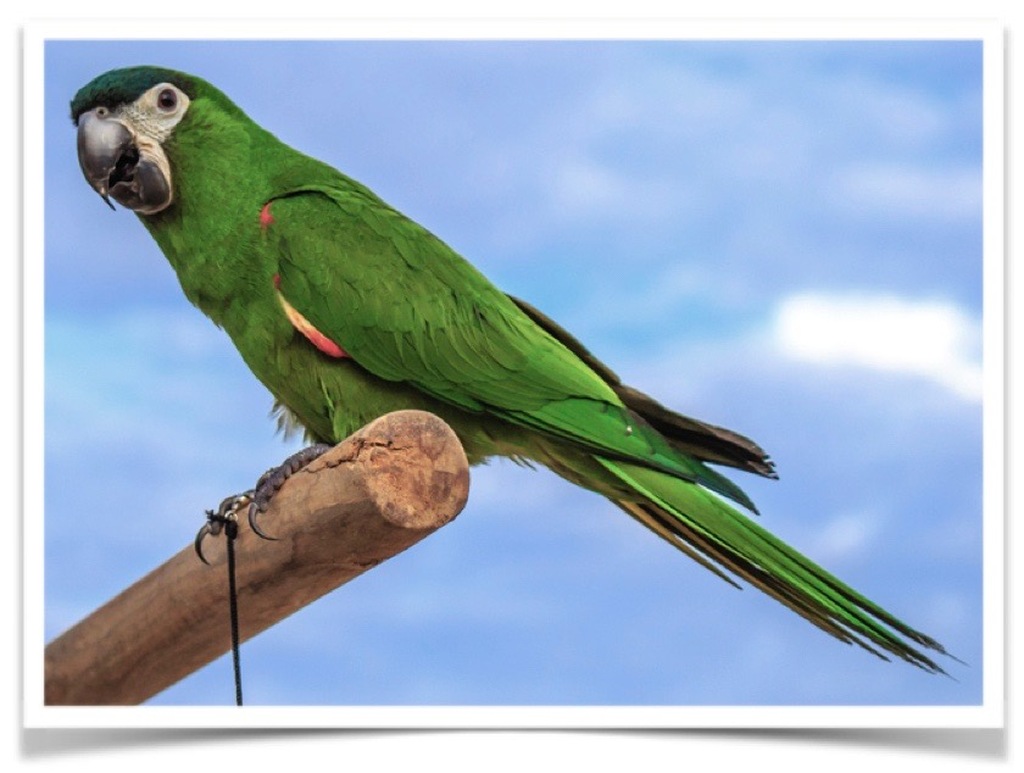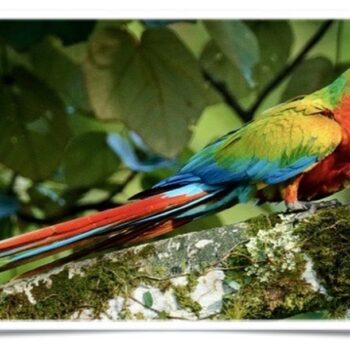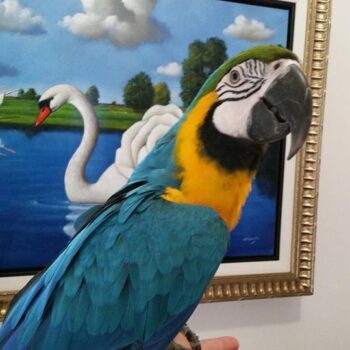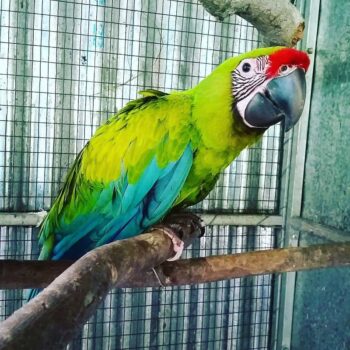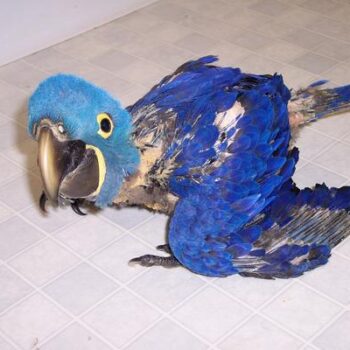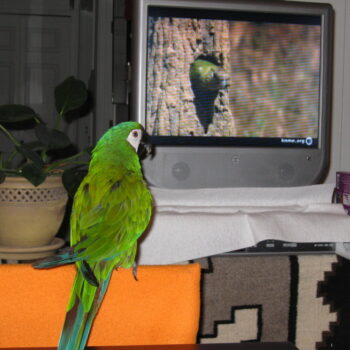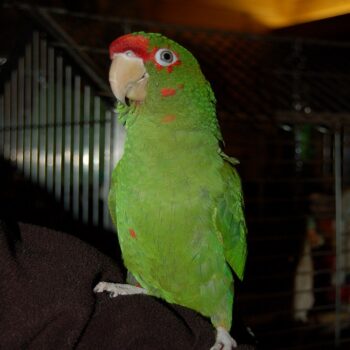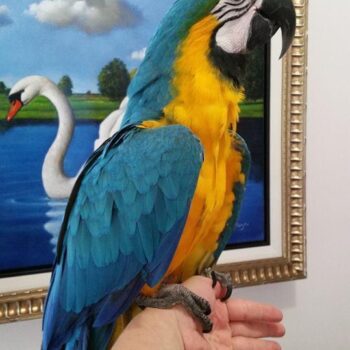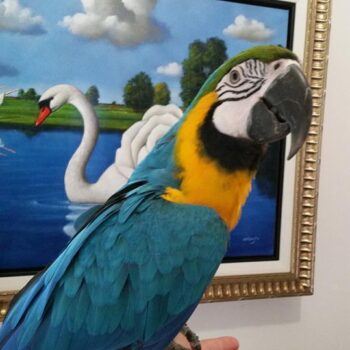The Hahn’s Macaw is a smaller macaw in the parrot family, and one of two varieties of macaws belonging to the Red-Shouldered Macaws. The noble macaw (Ara nobilis cumanensis) is the other, and both are native to northern South America. In the wild, they live in Bolivia, Brazil, the Guianas, Peru, and Venezuela. In their natural environments they live in tropical lowlands, but also enjoy savannas and swamplands. Hahn’s Macaws have vibrant green feathering with bits of blue green around their head. These Macaws also have bright red on the undersides of their wings, earning them the nickname of ‘red-shouldered macaw’. Their beak is black with bits of beige and white in the upper beak and their eyes resemble a beautiful burnt orange hue, framed by classic white eye-rings.
Size: about 12-14 inches in length
LifeSpan: 30 plus years
Behavior & Temperament: Hahn’s Macaws are playful and petite, but are very vocal and require lots of socialization, exercise and stimulation with toys to keep from becoming bored or depressed. They are quite gentle macaws and their tendency to nip as youngsters is outgrown as they mature. To accommodate climbing and the handling of food and other objects, two of their toes point forward while two toes point toward the back. With practice they can learn many tricks and quite a few vocalizations. They also do well around children but if noise is a concern, they are not the best choice for apartment dwelling. They can be quite loud vocally. With training, males and females will develop an impressive vocabulary of words, and their voices are high-pitched and clear.
Diet: Hahn’s macaws should be fed an interesting diet consisting of a high-quality pellet and seed mix, including Lafeber’s Nutri-Berries, Avi-Cakes. This is in addition to daily servings of fresh fruits and vegetables.
* courtesy of TheSprucePets
DNA Testing
If there is no gender option listed for a bird on our website, that particular species is ‘monomorphic’, which means we’re unable to determine gender without purchasing DNA testing. DNA testing is an additional $149 per bird to guarantee preferred gender. DNA testing may add an additional 3-6 plus weeks to estimated delivery time to allow for gender results. See our FAQs for more info.
